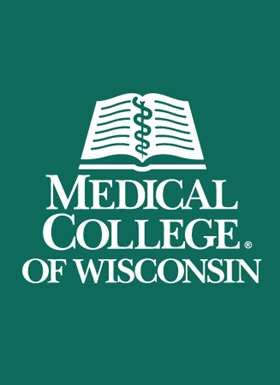MCW APP Psychiatry and Mental Health Fellowship

Who should consider an APP psychiatry and mental health fellowship?
APPs with interest in advancing their clinical skills to assess, diagnose, and treat complex patients with psychiatric and behavioral health needs.
APPs interested in transitioning to practice in a mentored environment to build a professional network and clarify through experience a best fit for clinical practice and starting their career.
What are the benefits of an APP psychiatry and mental health fellowship?
Gain the hands-on experience and dedicated learning time needed to develop confidence and competence in the Psychiatric and Behavior Health field.
Structured, supportive training helps newly graduated APPs or those transitioning from other specialties thrive in a new clinical environment.
Experience a variety of patient care and specialty care areas with one-on-one guidance and a curriculum tailored to meet career goals.
Professional mentorship and networking.
Advance your clinical decision-making and problem-solving skills in diverse, real-world environments.
Develop leadership skills, build resilience, and prepare to lead in a rapidly evolving healthcare system.
Apply to the APP Psychiatry and Mental Health Fellowship Program
Fall start dates are available; up to 4 fellows are selected annually.
Learn more about application details, including information about interviews, salary, and benefits.
How We Learn
Our fellowship program focuses on hands-on, clinical experiences across Psychiatric & Mental Health subspecialties with a mix of rotations throughout the academic healthcare system.

Featured Voices

“I would not be the clinician I am today if it were not for entering Medical College of Wisconsin’s APP Psychiatry Mental Health Fellowship and having the privilege of working alongside MCW’s incredible clinicians. When I graduated from school, I deeply desired to be able to transition to practice in a supportive environment that would enhance my learning, and allow me to provide the highest quality of care possible to my future patients. This fellowship has provided me that and so much more! The fellowship through individualized mentorship, supervising my clinical practice, and providing a wealth of resources through grand round presentations, case studies, and individualized lectures to enhance my knowledge-base has allowed me to flourish as a clinician. I am so grateful for this fellowship and know that this fellowship will continue to prepare APPs to deliver high quality, patient-centered mental health care for years into the future.”
Jennifer Bentley, APNP, PMHNP-BC

"Completing the Psychiatry Mental Health Fellowship has been a transformative experience in my journey as an APNP. The program enhanced my clinical skills and boosted my confidence in providing holistic, evidence-based care to individuals with complex mental health challenges. The fellowship offered hands-on training, mentorship from experienced providers, and exposure to diverse patient populations. I deepened my understanding of psychopharmacology and psychotherapy while learning the value of cultural sensitivity and compassion in practice. I particularly appreciated the supportive environment that fostered professional growth and collaboration. This fellowship effectively bridged the gap between theory and practice, preparing me to be a competent and empathetic psychiatric mental health provider. I highly recommend it to any APNP looking to advance their mental health expertise and positively impact patients and their families."
Rakesh Patyal, APNP, PMHNP-BC, FNP-BC
Current Fellows

Olivia Muhlenbeck, APNP
Psychiatry and Mental Health APP Fellow

Kristin Schiestle, APNP
Psychiatry and Mental Health APP Fellow

Jennifer Swintek, APNP
Psychiatry and Mental Health APP Fellow

Anjali Thakrar, PA-C
Psychiatry and Mental Health APP Fellow
Meet Our Program Team

Jason Ipsarides, DNP, PMHNP-BC
Assistant Professor Psychiatry
APP Psychiatry and Mental Health Fellowship Program Director

Jennifer A. Bentley, APNP, PMHNP-BC
APP Psychiatry
APP Psychiatry and Mental Health Fellowship Program Associate Director

Colleen Ballbach, CPNP-PC, PMHS
APP Vice Chair, Psychiatry

Cory Hagen
Education Program Coordinator III
Contact Us
For general fellowship questions or to submit additional application documentation
psychappfellowship@mcw.edu

